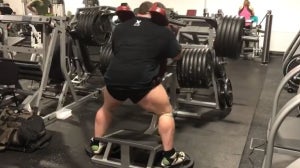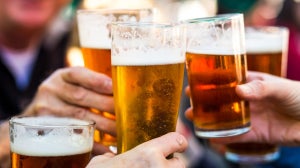
By Tommy Cole |
Personal Trainer & MSc Nutrition student
Nutrition misconceptions are widespread and there is no greater place for such misinformation to be spread than in the fitness industry and amongst keen gym goers where knowledge of the latest and greatest dietary protocol or hack is highly sought after. In fact, those of us that give greater importance to nutrition may be more vulnerable to the myriad of myths and misinformation out there (1).
For the most part, the spread of such misinformation and dietary fads is done so with the best intentions and is merely down to a lack of understanding of some fundamental principles for fat loss. As such, this article will introduce the two most important principles of any nutrition plan or diet which enable you to identify poor information and steer clear of faddy diets.
By understanding these principles you’ll stop yourself from following the footsteps of many dieters who miss the forest for the trees and focus primarily on the minutia rather than the bigger picture. That is, you’ll know the two most important considerations of any fat loss nutrition programme!
#1 You Must Create An Energy Deficit

An energy/Calorie deficit is when your energy intake from food and drink is less then your expenditure (ie: your metabolic rate). You’re constantly ‘burning’ energy and your metabolic rate is the energy your body uses for all chemical reactions in the cells of your body that keep you alive and moving about (ie: your metabolic rate is the energy used to fuel bodily processes).
This energy doesn’t come from thin air and you have to get it from your food/drink intake and/or bodily energy stores.
? Your body is constantly using and storing energy, however, if over the course of the day your intake is less than your expenditure, you’ll have an overall loss of bodily energy stores. This stored energy can come from a variety of places, such as body fat and glycogen, and where it comes from will depend on a number of factors such as exercise intensity and food intake. However, ultimately, if you fail to create a calorie deficit, you'll struggle to lose stored body fat and as a result you won't reveal your six pack (2).
? This principle is essentially what all weight/fat loss diets are based upon and have in common...Ever wondered why people seem to get results from a tonne of crazy diets such as minimising carbs, fat or cutting out gluten?
Well now you know why; they created a calorie deficit by reducing their food intake.
#2 Make Sure It’s Maintainable

This second principle is one that’s often disregarded when a new diet comes on the scene and is largely responsible for the statistic that only 20-30% of those trying to lose weight actually maintain 10% weight loss after 5-7 years (3). This is due the fact that ultimately, most dieters get fed up of the restrictive nature of diets and throw in the towel after a few weeks or months, returning to their pre dieting habits. Understandably, this isn’t conductive to long-term results.
Regardless of whether a proposed diet is the most optimal approach to lose fat whilst maintaining or even building muscle, it’s next to worthless if you can’t stick to it.
For example:
You could choose a diet that gives you 100% of the results you’re after but you can only stick to it 50% of the time. If you do this, you might see results but chances that your time spent off the diet will prevent you from seeing meaningful progress.
Alternatively, you could choose more of a lifestyle approach that you can stick to 100% of the time that is less optimal (if an optimal diet even exists). In any case, most faddy diets are far from what might be considered optimal and are also rarely maintainable.
What are the characteristics of a maintainable diet?
Understandably this is subjective as everyone has different likes and dislikes and therefore there are lots of different approaches you can take to achieve results. However, some generalisations can be made based on the scientific evidence and you should consider the following when assessing or considering claims made about a particular diet.

Firstly, most people do best on a diet that offers some form of flexibility. What I mean by this is that most dieters will find it easier to maintain and achieve results on a diet that allows them to enjoy “unhealthy” foods in moderation whereas rigid dieters that exclude certain foods or food groups are generally less successful at cutting fat (4,5,6).
Many faddy diets have rigid rules and “no go” foods so watch out for this one.
? Ensuring a diet is mostly composed of nutritious whole-foods is also important to maintain it long term. This is because these foods will help keep you feeling fuller for longer and as I’m sure you’re aware, they’re vital to maintain your health.
? Finally eating plenty of protein generally helps improve dietary adherence because, like the whole foods mentioned above,protein is particularly filling and will reduce the chances of you craving foods that will sacrifice your calorie deficit!
Take Home Message
Practical Application
Like with most things nutrition related, there is no black and white and regardless of what anyone tells you there is no perfect diet or meal plan to shed fat.
As I have outlined, there are a couple of major things to look out for when assessing a dietary protocol and to apply these principles and avoid the multitude of faddy diets about you should ask yourself these questions when considering a diet:

Whey ProteinLean muscle
Omega 3'sBody Function
Pre-WorkoutEnergy, Focus
BCAA'sMuscle recovery
Our articles should be used for informational and educational purposes only and are not intended to be taken as medical advice. If you're concerned, consult a health professional before taking dietary supplements or introducing any major changes to your diet.








